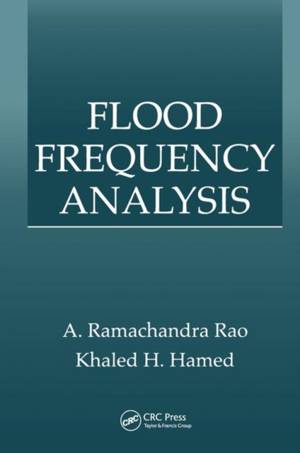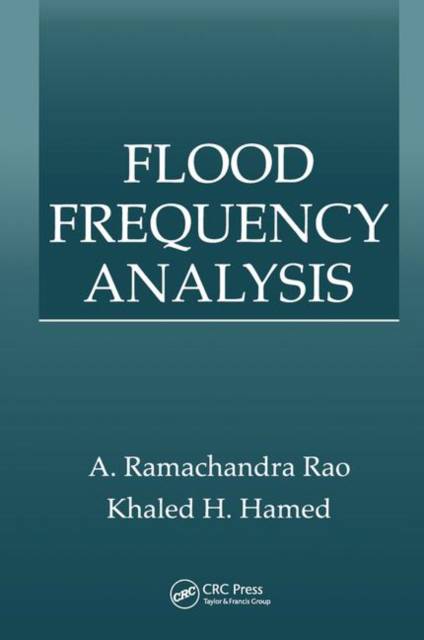
En raison d'une grêve chez bpost, votre commande pourrait être retardée. Vous avez besoin d’un livre rapidement ? Nos magasins vous accueillent à bras ouverts !
- Retrait gratuit dans votre magasin Club
- 7.000.000 titres dans notre catalogue
- Payer en toute sécurité
- Toujours un magasin près de chez vous
En raison de la grêve chez bpost, votre commande pourrait être retardée. Vous avez besoin d’un livre rapidement ? Nos magasins vous accueillent à bras ouverts !
- Retrait gratuit dans votre magasin Club
- 7.000.0000 titres dans notre catalogue
- Payer en toute sécurité
- Toujours un magasin près de chez vous
Flood Frequency Analysis
297,45 €
+ 594 points
Description
After five decades, the field of Statistical Hydrology continues to evolve and remains a very active area of investigation. Researchers continue to examine various distributions, methods of estimation of parameters, and problems related to regionalization. However, much of this research appears in journals and reports and usually in a form not easily accessible to practitioners and students-producing a gap between research and practice. Flood Frequency Analysis fills this gap by presenting many of these distributions and estimation procedures in a unified format within a single, self-contained book. Focusing on distribution families popular within the hydrologic community, the authors discuss three parameter estimation methods for each distribution: the method of moments, the maximum likelihood method, and the method of probability weighted moments. They present the details behind the procedures to provide the basis for the computations, and they illustrate each procedure with real data. Most of the computations discussed have been programmed for use with personal computers, and executable versions of these programs are available on CD-ROM from the senior author. Only increased use of new methods and distributions can produce a consensus on their validity. With other books on the subject either limited in scope or seriously outdated, Flood Frequency Analysis provides the ideal vehicle for practicing hydrologists and engineers to explore and apply the latest methods and research results, and in doing so, contribute to the advancement of the field.
Spécifications
Parties prenantes
- Editeur:
Contenu
- Nombre de pages :
- 372
- Langue:
- Anglais
- Collection :
Caractéristiques
- EAN:
- 9780849300837
- Date de parution :
- 15-10-99
- Format:
- Livre relié
- Format numérique:
- Genaaid
- Dimensions :
- 162 mm x 241 mm
- Poids :
- 689 g

Les avis
Nous publions uniquement les avis qui respectent les conditions requises. Consultez nos conditions pour les avis.





